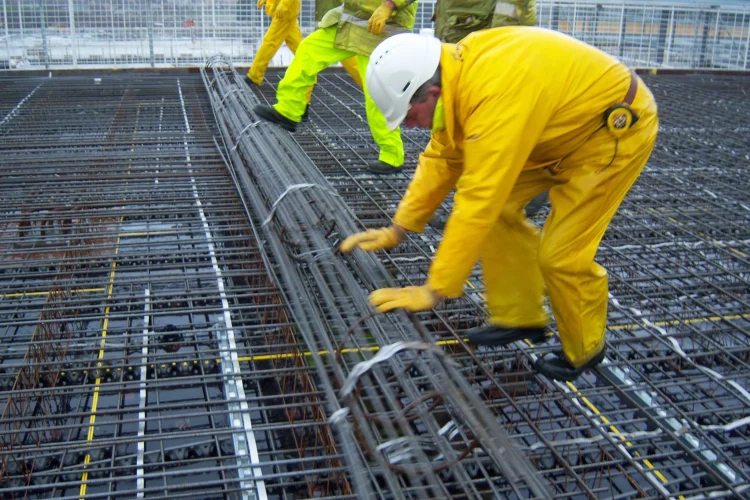Publisher: Maaal International Media Company
License: 465734
Global rebar prices fall 7% in a month, but local prices rise 2.5%
اقرأ المزيد
A survey by Maaal revealed that global rebar prices hit their lowest level in three years this week, following a series of declines that began last October. This decline stems from concerns about declining demand in China amid the trade war with the United States and its impact on global economic growth rates, as well as increased Turkish exports in recent months. Meanwhile, domestic rebar prices rose by 2.5% during the first quarter of this year, supported by local demand.
According to the survey, global rebar prices returned to decline last April after the increase they witnessed in March. The price of a ton of Turkish rebar (excluding shipping) reached $545 per ton this week, compared to $485 per ton in the last week of March, a decrease of 7%, and compared to $620 per ton last October, a decrease of 12%. Therefore, the rate of decline during the last month has increased significantly. The ongoing trade war between the United States and China, which has extended to US imports from all over the world, has cast a shadow over the prospects for global economic growth in general and China in particular, amid expectations of a decline in global demand for steel. China’s iron ore imports fell in March to their lowest level in 20 months, contributing to a 7.8% year-on-year decline in first-quarter shipments, reaching approximately 285.31 million tons.
According to the Turkish Steel Producers Association (TCUD), Turkey’s steel exports rose 31.3% in March of this year to 1.48 million tons. The value of these exports increased by 18.6% year-on-year to $1 billion. In the first quarter, Turkey’s steel exports rose by 18.5% to 3.79 million tons. The value of these exports increased by 8.4% year-on-year to $2.55 billion. Locally, monitoring data shows that the rebar market in the Kingdom witnessed a slight increase in prices during the first quarter of this year, not exceeding 2.5% compared to the same period last year. According to data from the General Authority for Statistics, the average price per ton of rebar during the first quarter of this year was approximately SAR 2,955, compared to approximately SAR 2,882 per ton during the same quarter of 2024.
According to local companies’ price announcements for May, local prices have begun to be affected and decline in line with global prices. The Saudi Iron and Steel Company (Hadeed) announced a reduction in its new prices for long rebar products by SAR 70 ($19) per ton, bringing the new price to SAR 2,280 ($607) per ton. Expectations indicate that the pressures of declining global prices will limit the rise in domestic rebar prices during the current year, especially in light of the significant momentum witnessed by the local construction sector, due to the increase in domestic demand. Demand for cement increased by 6.3% in the first quarter of this year compared to the same period last year, and production increased by 8%, supported by the increase in domestic demand.
It is worth noting that local rebar is superior in quality to imported steel, and therefore, local demand is often directed towards local products. However, pressure from importers is forcing national companies to reduce prices in line with price competition that benefits the end consumer.
The series of major projects underway across the Kingdom, stemming from Saudi Vision 2030, most notably the NEOM Project, the Red Sea Project, Amaala, and Qiddiya, in addition to the activity witnessed in the housing sector due to the numerous initiatives launched by the Ministry of Municipal and Rural Affairs and Housing, are contributing to the increase in domestic demand for cement, rebar, and other construction materials.








